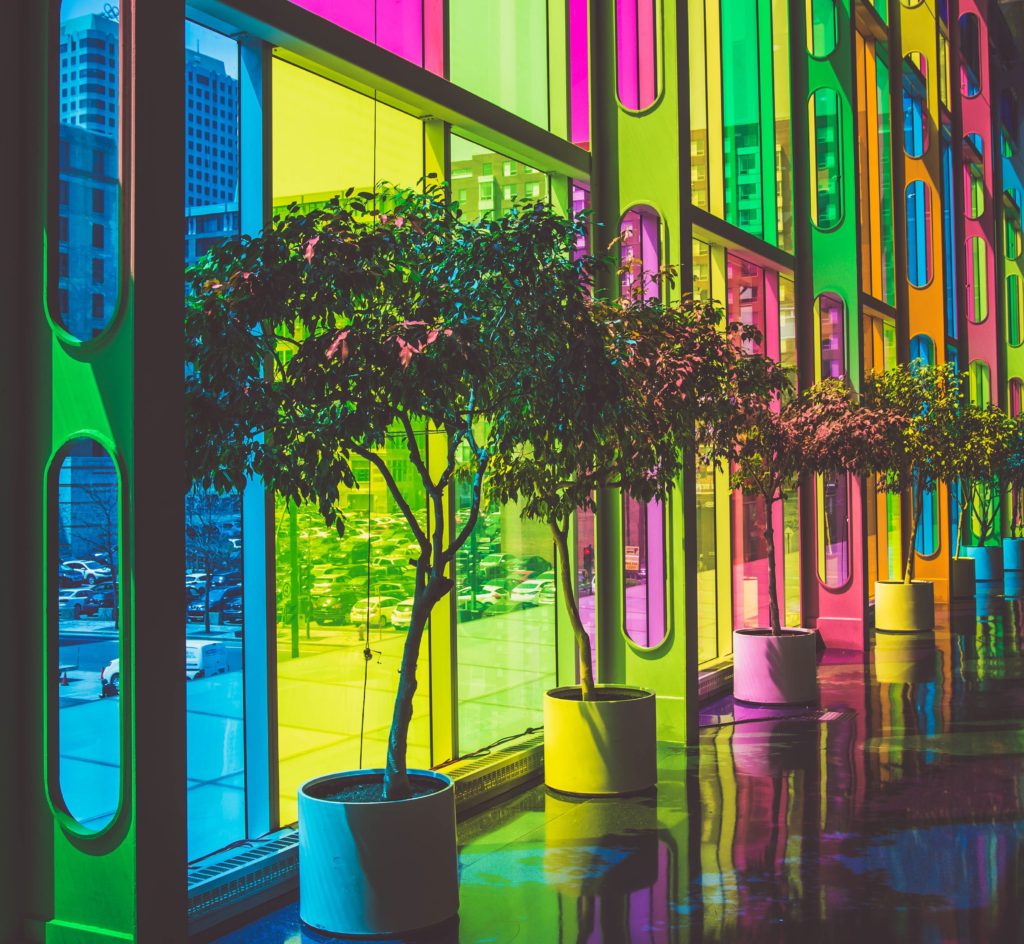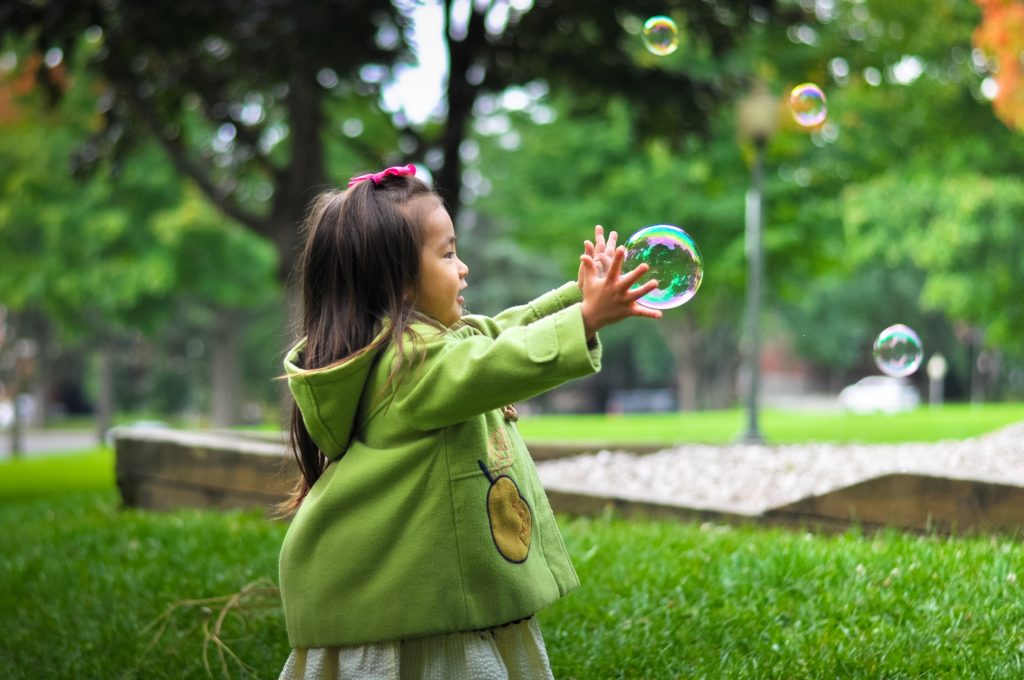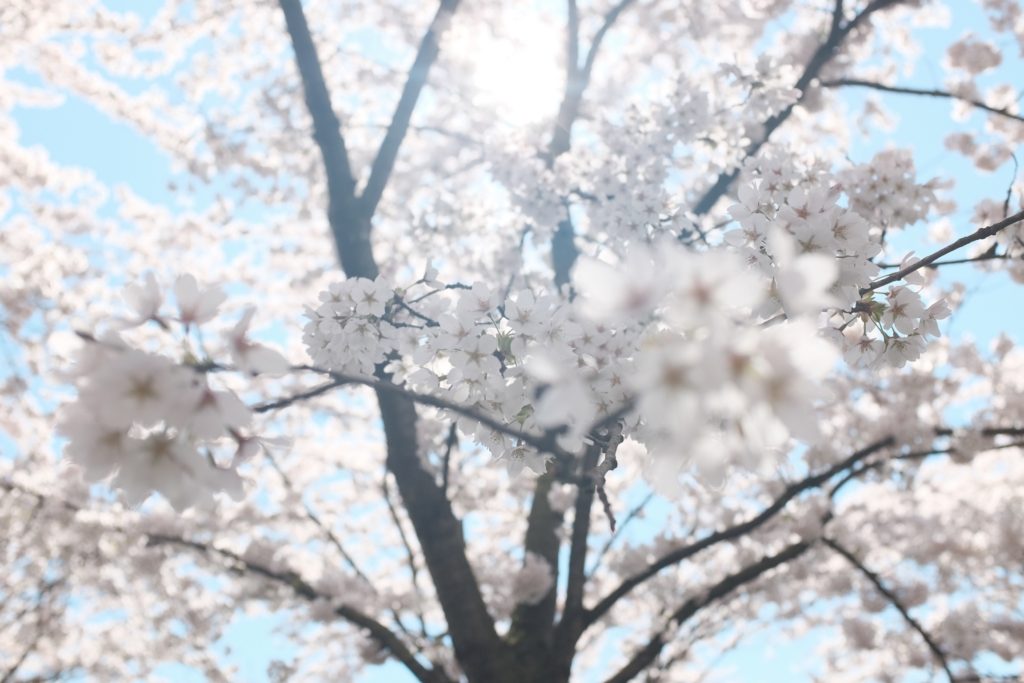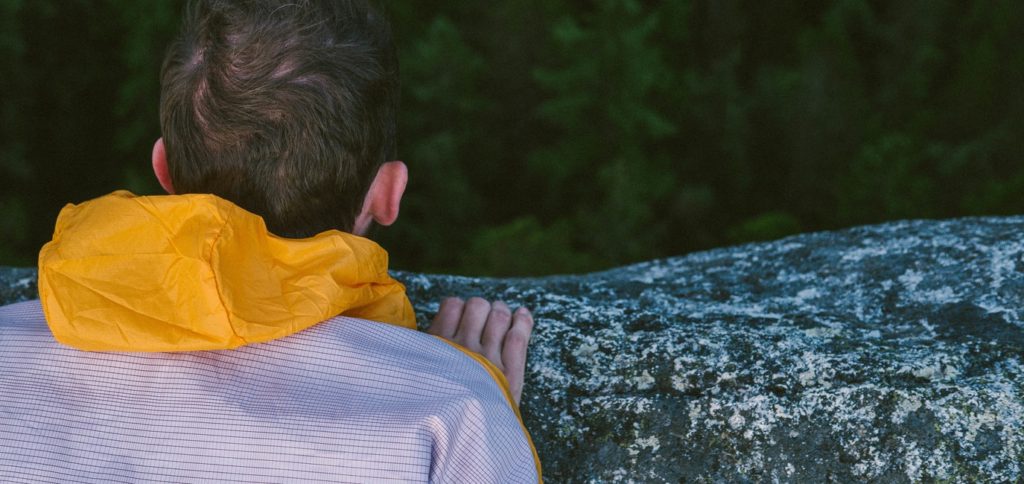Sometimes I get lost in my own head. I get caught up with my emotions, my problems, etc. That doesn’t mean I’m not also aware of what’s going on with other people – I’ve had lots of feelings about what happened in Orlando, for instance – but I get trapped in the emotional whirlwind.
I texted a friend this week and he said when he’s in such a state, he tries to get in touch with the part of himself that is greater than all of that. Not in a detached, suppress-your-feelings kind of way, but in a recognition there’s another “self,” here. There’s another entity present.
In my yoga and meditation group, we talk about the existence of a witnessing entity. An all-seeing, all-knowing entity that is always present everywhere. It’s detached and unperturbed like the depths of the ocean. There’s a Self that sees the comings and goings but remains unaffected. There’s my little “I” that worries about the mundane trials and tribulations, that gets caught up in emotional storms like a boat thrashing about in the sea, and then there’s the big “I” that dwells beneath the storm, deep in the water.
When I pull back a little, when I detach a bit from my little self and connect to my big Self, I’m given some perspective. I’m reminded I’ve been through turbulent times before and I’ll go through turbulent times again. Life is a constant flow, an unending cycle of pleasure and pain. But in the grand scheme of things, all is well and all shall be well.
Please don’t misunderstand me, I am not saying there aren’t real problems in the world. There is some serious stuff going down that requires our attention and our action. I don’t think if we all sit on our meditation cushions that suddenly hungry children will get fed and the air will clear. Action is required from us. But what I am saying is we are more than our problems. We are more than our sufferings. We are more than we think we are. There is an other here. A calm, quiet voice within, if you will. And when I get in touch with that higher Self, I am able to tap into an infinite source of wisdom, kindness, and perspective that will aid me in every endeavor. When I tap into that source, I tap into the part that’s me-er than me, and from there, I can handle anything.
I dream of a world where we remember we are more than the sum of our parts. A world where we remember there is another Self with us; a Self that graces us with kindness, wisdom, perspective, and inspiration. A world where we remember we’ve been through trouble before and we’ll go through trouble again, but not to worry because we are never alone or helpless. The force that guides the stars guides us too.
Another world is not only possible, it’s probable.
I’m in rough shape today as I’m recovering from a 48-hour bug, so here is a post I tweaked from July 2011.
I want all of my feelings to be in agreement. I want to be either happy or sad – not both. Particularly not both about a single event.
Until yesterday, I was in Washington, D.C. for a wedding, which I decided to turn into a long weekend trip. I love Washington, D.C. I went to school there, I became an adult there, one of my favorite places on Earth is there. Yet, I live in California and I love California. I love the weather, I love my friends, I love my apartment, my life, my community.
I felt (and feel) sad about leaving the district because not only are my favorite places there, but also some dear friends. My heart is heavy because I don’t know when I’ll see them again. Washington, D.C. is a special place for me because I don’t have one or two good friends who live there, I have about a dozen. It’s hard to leave such a large and deep pocket of love and kinship. I was sad to leave but happy to come home. A part of me wants to pick a side, to say I’m either sad to leave D.C. or happy to come back to California. But that’s not true. I honestly feel both.
What I’m learning is my feelings are complex and multifaceted so that means I can feel both. I don’t have to pick a side. I don’t have to move back to D.C. because I miss living there. I don’t have to abandon my life in the Bay Area. I don’t have to do anything really except feel what I’m feeling. Allow myself to experience both happiness and sadness, yes, even at the same time.
My life these days is no longer black and white, it’s technicolor. I am an unlimited being so I don’t have to restrict myself to feeling one way or another. Perhaps that’s what it means to be an adult, recognizing there are numerous feelings and life isn’t as simple as I thought it was. I can feel both. I can love multiple people, places, and things, and nothing has to replace anything else. I can have multiple favorites.
I wish everything was cut and dry because life would be so much simpler that way, but in truth, it’s not. So that’s what I’m encouraging: to embrace life as it is, in all its technicolor glory.
I dream of a world where contradicting feelings may coexist. A world where we allow for all possibilities and situations without trying to force ourselves to feel one way or another. A world where we accept our complexity and our depth. A world where we know one thing does not have to preclude the other.
Another world is not only possible, it’s probable.
I want to feel special, chosen, exalted. Unfortunately, I’ve been operating under the misconception it’s other people’s responsibility to do that for me. I’ve been relying on other people to make me feel special and guess what? It’s not working.
I know it’s not working because people tell me how special I am, how wonderful, etc. and I can’t take the compliments in. I don’t believe the person because as much as they love and care for me, it’s not enough. It’s never enough. I want to be the specialist special snowflake there is. I want to be the best, the favorite, the most loved. And I have some shame about that. Particularly because I’ve been told over and over again that everyone is special, no one is more unique than anyone else, etc. But in my mind, saying everyone is special is the same as saying no one is special, myself included. I’ve been operating from a scarcity mindset: “There is only so much special to go around!” but in truth, that’s not the case.
I think about a story I heard from Marianne Williamson on beauty. She walked into her niece’s bedroom one day and found the girl and her friends trash talking a supermodel, nitpicking every flaw as to evidence why the supermodel wasn’t beautiful. Marianne gently told the girls, no, the supermodel is beautiful, but so are you. The supermodel’s beauty doesn’t detract from theirs. There is enough beauty to go around. If that can be said about beauty, why can’t it also be said about uniqueness?
I also think about a few blogposts I wrote: “We are What We Seek,” and “Why We Matter.” In “We are What We Seek,” I was reminded the things I seek externally I already have internally. In this instance, no person will ever make me feel special if I don’t tell that to myself, if I don’t believe it already. In “Why We Matter,” I wrote about how we are unique manifestations of a Cosmic Consciousness, here to co-creatively birth something that otherwise would not have been in existence. Doesn’t that also mean we’re special? No person like you or me has ever existed before nor will they exist in the future.
The bottom line here is we are each divine children of the universe. None of us is more loved than another but instead of being loved equally, I think we’re loved differently. Our unique talents and gifts should be praised and appreciated but they should not be placed above anyone else’s because each of us is valued, important, and precious.
I dream of a world where we know we are each special because we each are different. A world where we understand we are a one-of-a-kind divine being who has never existed before and will never exist again. A world where we understand feeling special is an inside job and a gift we give to ourselves.
Another world is not only possible, it’s probable.
One of my favorite quotes is by Marianne Williamson who says, “Romantic relationships are like getting a PhD in spirituality.” Preach sister. However, for me, every relationship is like getting a PhD in spirituality. There is not one relationship that doesn’t teach me something, even if it’s a relationship with an animal. Why is that though?
I’m pretty sure it’s due to my upbringing in a tantric practice. The psycho-spiritual tantra I practice uses everything as a vehicle for liberation. It also uses symbols to approach something that is ultimately beyond symbolization. This manifests itself primarily through relationship.
To back up a bit and to give some context, the tantric worldview is one in which a universally abounding macrocosmic Consciousness comes to know Itself through each of Its microcosmic reflecting forms – not only in humans or animals, but in plants, planets, and stars. The Consciousness in all things may lie seemingly dormant in something like a rock, but in humans, the Consciousness becomes self-aware and allows us to actively co-create in this great “knowing,” so to speak. What that means is we as humans come to know and understand ourselves symbolically through the form of others.
Boiling that concept down, people, but not just people, are teachers. I’m sure you’ve already found this to be true. I bring this up and find this concept to be so important, that I learn about myself through what’s outside of me, because it gives everything a different spin. It means other people, places, and things are not conquests, are not objects that exist outside of me, are not around solely for my pleasure and enjoyment, but rather are me. This worldview explains why it makes sense to say, “We’re all one,” because I learn about me through you, and you learn about you through me. There is no “out there.”
In other words, the whole world is a reflection of me in different forms, like a potter using clay. There are bowls and vases, but they’re both made out of clay.
I’m not sure I can convey why this concept is so profound for me, but there’s something about recognizing you are an expression of me, that we are not separate from each other, that’s mind boggling. It means when I see a homeless person, I don’t view them as “other,” I view them as me. Can you imagine what the world would be like if we all felt that way? If we saw refugees as us? If we viewed nature as a different expression of ourselves? Would we be so cavalier to inflict harm? To cut down all the trees, to drain lakes, to build high fences, to abuse our brethren? Somehow I think not. I know this to be true because I’ve seen a new way of being and I have that dream for all of us.
I dream of a world where we view each other as ourselves. A world where we understand we come to know ourselves through a myriad of forms. A world where we treat everything around us with reverence and love. A world where we view that which is outside of us not as things for the taking, but as beings to behold.
Another world is not only possible, it’s probable.
I want to make an impact in the world. I want to use my gifts in the service of others. In my mind, if I’m not famous, if I don’t have 10 million Youtube followers, then I’m not making a difference. I’m conflating fame with significance. How could I not? When a simple tweet from a celebrity can launch someone’s career or shine the spotlight on an important issue, of course I’m under the impression fame and significance are linked.
I realize a person doesn’t have to be famous in order to make a difference – there are many teachers, activists, doctors, etc. who do great work in the world and no one knows their name, but the thing is, I’m not a teacher, activist, or doctor. I’m a writer. And in my world, if people aren’t reading what I’m writing, then I might as well launch my posts into a black hole for all the good they’re doing.
I talked about this with my dear writer friend Amal, who doesn’t have this issue. He reminded me about Herman Melville, who was never a financially successful writer, by the way, even though we have all heard of his book Moby Dick. Did you know Moby Dick was a commercial failure and published to mixed reviews? And also that it wasn’t until the late 1910s, early 1920s, which is almost 20 years after his death, that people started to talk about him? Moby Dick was written more than 150 years ago and we’re still studying it in school! Talk about significant.
I’m not saying I’m Herman Melville because I’m not, but what I’m coming to understand more deeply is the notion of artists as pioneers, something my spiritual teacher propounds. What does that mean, to be a pioneer? It means often a person won’t be appreciated in their time, that they’re on the forefront of society, staking out new territory to pave the way for future generations. What this means is just because a person isn’t recognized, isn’t popular or famous, doesn’t mean they’re not doing good work.
That sounds obvious I know, but right now our society places so much emphasis on social capital. “How many Twitter followers do you have? Who regramed you on Instagram? Did anyone share your Facebook post?” Right now it seems easy to become famous from your living room and when 1.4 million people like a Facebook post, they turn into an important person, at least in my mind. But will any of them be remembered in 150 years? Will I?
The ultimate point I’m making in a roundabout way is it’s not my job to worry about fame. Fame doesn’t necessarily mean a person is making a difference, it just means people are paying attention to them. It’s my job as an artist and writer to keep being a pioneer, to keep transmitting messages and inspiration that I receive, and to surrender the fruits of my labor. It’s not my job to attract Facebook followers or to cultivate a name for myself. It’s my job to use my gifts regardless of how much attention I receive. And not just my job, everyone’s job. We are all special and unique human beings who may never get the recognition we crave, but that doesn’t mean what we’re doing isn’t worthwhile or that it’s insignificant.
I dream of a world where we understand fame doesn’t necessarily translate into significance. A world where we realize we have no idea what the future holds or what the fruits of our actions will be. A world where we keep doing the work required of us, letting go of the outcomes.
Another world is not only possible, it’s probable.
The other week, I ended early with my writing coaching client (which never happens) and conducted my usual grocery shopping. As I walked out of the grocery store, I ran into someone I literally haven’t seen or talked to in close to five years. It turns out, a few days prior he mentioned me to his girlfriend and voila, we ran into each other.
Even better, during the course of our conversation I said some things it seemed he needed to hear so in many ways I felt like a messenger. I walked away from our encounter on a high, marveling at the magic and the mystery of the universe.
Some people would say that interaction was a coincidence, a happy accident. I don’t view it that way at all. My spiritual teacher says everything is incidental. “For each and every incident there is some cause,” he says. We may or may not know the cause, but that doesn’t mean there isn’t one.
He gives the example of an earthquake saying perhaps a huge stone took 10 million years to move from one place to another, but when it fell, the action took only a few seconds and caused the earth to shake. The cause took 10 million years to come to fruition but there was a cause for the earthquake, it didn’t just “happen.”
When I look at the synchronistic turn of events from the other week, I am reminded there is a divine intelligence in place. There is some force at work that configured things just so, allowing me to meet this friend. If I hadn’t left my coaching session early, if my friend walked into the grocery store five minutes later, etc. our meeting wouldn’t have occurred. I am truly in awe of all the moving parts that needed to align in order for us to run into each other.
This story comforts me because at the moment there are a few areas of my life where I feel stuck and hopeless. Where I don’t see how they can or will change. I am convinced they will stay in their current state for the rest of my days. But then I think about this “chance” encounter with my friend and am reminded things can and do change unexpectedly. And not only that, there is also a guiding presence in my life, overseeing everything.
If I can run into a friend out of the blue, is there also a chance these areas of life can also change? That things won’t stay the same? That something else unexpected will show up in my life to shake things up? Like the stone that took 10 million years to fall, maybe there are events slowly, slowly unfolding and when they drop will shake the ground beneath my feet. I find that both terrifying and exciting. I cling to the notion though the universe is working for my benefit, that it ultimately wants to see me succeed.
I dream of a world where we realize everything is incidental. A world where we realize we may not know the initial cause but that doesn’t mean there isn’t one. A world were we remember there is a guiding force in our life that arranges circumstances and events for our benefit.
Another world is not only possible, it’s probable.
I’ve had a nightmare literally every night for more than a week so I’m in no condition to do anything other than rest. As such, here is a post from almost exactly three years ago.
I think I’ve written an iteration of this blogpost a thousand times, but I have to write what’s true for me and this week it’s been all about how the universe knows what I need even before I do sometimes.
I posted this on facebook a few days ago so many of you have already read it, but when I was in Washington, D.C. a few months ago, somebody gave me a magnet. My reaction was, “Great. Like I need any more stuff.” However, I kept it because I couldn’t bring myself to throw it away.
On Tuesday, I moved into my sublet in Berkeley. It’s a really cute apartment, but the guy I’m renting from is minimalistic. There’s no cheese grater, cookie sheet, hell, he didn’t even leave me any pens. As I unpacked, I came across my magnet and I stuck it up on the bare refrigerator. As soon as the magnet touched the surface, a wave of feeling swept over me. I choked up because I realized the magnet was given to me months in advance for this very moment when I would need it. To know the universe loves and supports me, in ways I can’t even fathom yet, really touched me. To see that I’m taken care of in even such a small way turned on the water works.
I love this story because I can extrapolate this small event for the bigger stuff. As I said, I’m subletting, so that means I still have to find a permanent place to live. (And permanent in this case means at least a year.) I have some anxiety about it because what I want seems nigh impossible: affordable, spacious, and in a good location? Most people would say I’d be lucky to have two of those things. To see how the universe takes care of me in a very real way gives me hope that my beautiful apartment will also manifest. And it gives me hope I’ll always be taken care of in ways I can’t even predict yet.
I dream of a world where we know we’re always taken care of. A world where we know all of our needs will always be met even if the setup has to happen in advance. A world where we rest easy, feeling joyous and free because we know the universe will always provide for us if we ask.
Another world is not only possible, it’s probable.
Right now I’m contemplating liberation and obstacles and the nature of the universe in part because it’s Passover. But even people who are not Jewish will relate to this post because we all experience hardships and wish for escape.
Passover continues to be a relevant holiday for me because it’s not just about celebrating the Jews’ liberation from the land of Egypt, it’s also about personal liberation. The Hebrew word for Egypt, “Mitzrayim,” also means narrow spaces. That means the escape from Egypt was also an escape from a narrow space, a constricting spot, something I, too, have escaped from.
When I think of narrow spaces, constricting spots, I think of obstacles. I associate obstacles with suffering, with pain, and with punishment. I don’t know where this came from, maybe growing up in the U.S. where there’s a lot of talk of hellfire and brimstone, but whenever I experience an obstacle, I think it’s because there’s a vengeful God out to get me who wants me to suffer, who wants to punish me. Or the terrible things that happen to me are as a result of previous actions, possibly from a past life, but also serve as a punishment. I see a watered-down version of this reflected in the New Age community too where the “bad” things that happen to people are a punishment of sorts for their “bad” thoughts.
The bottom line is lots of punishment. Lots of black and white thinking. Lots of cause and effect, but in a judgmental way. However, I came across a few discourses and attended a lecture with a friend this week that reminded me obstacles are not punishments. They don’t come about because God wants to punish us for our misdeeds. They come about for other reasons, which I may discuss at another time, but the main point for this post is God loves us tremendously and only wants to see us emancipated. The world is ultimately a benevolent one and the divine is seeking to liberate us, will do whatever it can to aid that, something aptly demonstrated not only in the Passover story, but in my own personal experience.
For every terrible thing that’s happened to me, there has also been some grace, some assistance. One small example that comes to mind is a few years ago, my neighbor decided a Wednesday night would be a brilliant time to get drunk and high and talk loudly outside. I previously asked for that Thursday off so instead of fretting about not getting any sleep and being unable to function for work, I calmed down understanding I was taken care of, that it was all good.
The universe ultimately wants to see us succeed. There will be obstacles along the way, that’s inevitable, but we will also be given tools to overcome those obstacles. Eventually we will all escape from our own narrow spaces, but maybe not in the way we think.
I dream of a world where we remember we live in a loving universe where the divine wants to see us liberated. A world where we understand there will always be obstacles but we will also experience grace. A world where we understand ultimately, it’s all good.
Another world is not only possible, it’s probable.
It’s been a rough week for my health condition. What that means is this week I’ve been more bothered by noise and other stimuli. I’ve found myself fantasizing about going somewhere else. Some place quiet, removed from people, and idyllic in every way. However, as I’ve learned over and over again, such a place does not exist. Every time I go somewhere I think will be quiet and peaceful, during the period I’m there, unplanned construction takes place, or the refrigerator is exceedingly loud, or there’s a fluke something or other. In short, there is no escape.
When I ask myself what’s up with that, I realize what’s underneath my desire to go someplace different is I don’t want to engage. I don’t want to stand up for myself with a noisy neighbor, I don’t want to assert my boundaries, I don’t want any conflict. If I dig even further, really I want someone else to do those things for me. I want someone else to take care of me and my needs. I want someone else to be the hero, to stand up for me, to put rude people in their place, so I can continue being a soft gooey glob. It should be no surprise then that I surround myself with strong personalities.
My higher power though wants me to be a whole and complete person and doesn’t let me get away with that sort of thing. I’ve come to believe that all the trials I’ve been put through regarding boundaries have been so I can do those things for myself. I’ve come to believe my higher power wants me to become my own hero, to stand up for myself, and to put rude people in their place so I can continue being a soft gooey glob inside.
I’m crying as I type that because I know it to be true. I know I’ve been seeking other people to do the things that I must learn to do for myself. I’ve been looking externally when I could have been looking internally. This week it became clear to me, I am the person I seek. I’m not sure I can express the magnitude of that realization for me. To realize all the things I’ve wanted someone else to do for me, I can do for myself. It has been deeply empowering and also very sweet to realize I am the person I’ve been looking for.
There are two quotes from my spiritual teacher that come to mind as pertinent for this topic. The first is, “The sweetest part of God’s play is that He is hidden in everyone and everyone is searching for Him.” The second is, “One who looks for Shiva in the external world, ignoring the Shiva of the internal world, is like one who throws away the rice that is in one’s hand and wanders from door to door in search of one’s livelihood.”
I have been the person throwing away the rice in my hand and then asking why I’m hungry. I’ve been hungry because I’ve been disowning parts of myself, important parts that are crucial for my existence. And interestingly, the universe will keep putting me in situations that require me to become what I’m looking for until I understand the lesson. Just like I don’t have to go to India to find God, I don’t have to go to someone else to find many of the things I seek because they already exist inside of me.
I dream of a world where we realize we are what we seek. A world where we turn internally first to find what we’re looking for. A world where we understand the universe is working in tandem with us to ensure we become the best version of ourselves.
Another world is not only possible, it’s probable.









